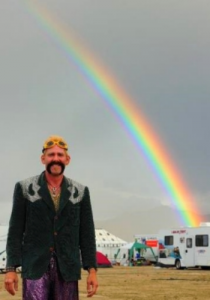Sunlight Defeats Shame
by Dave Klaus
I have a very different relationship with shame than I did a few years ago. Indeed, as I have learned to forgive and love myself, it rarely comes up at all. But when it does, I choose to dig right in, glean any useful information from the feeling, and then let it go.
But I used to feel a lot of shame.
I truly believed that there was something terribly wrong with me; that I was a freak, a weirdo, sui generis: truly alone in the world. Whenever I made a mistake, rather than forgive myself, I just added another reason to feel bad.
The data isn’t really that useful, but here are some examples of things I used to feel shame about: having bad acne, telling lies, being lazy, having little ability to talk with girls/women, being privileged, being spoiled, being mean to people, and best of all, shame for being ashamed.
The voice of shame is powerful. Unlike guilt, which is feeling bad for doing some specific act, shame is feeling bad just for Being. Sociologist Brene Brown usefully defines shame as the fear of disconnection: a fear that if any other human were ever to truly know me and see into my soul, they would recoil in disgust and shun me forever.
The cruel irony of this belief is that it leads to a most insidious cure. When I act out of shame, my clumsy effort to protect myself from judgment and separation leads me to present a false front to the world; to isolate and hide myself.
The “cure” thus produces the very “disease” I was trying to avoid: Being Alone!
It went something like this when shame started talking: “You’re a fraud, a faker, you’re a piece of shit!! If anyone really knew you, you would be fucked! NO ONE would like you! No one would love you! So… Tell no one the truth. Pretend that everything is just GREAT!! Hold it IN!”
Ugh. It hurts to hear that voice again.
In hiding my true feelings, I created a solitary confinement of shame.
And in a tragically familiar cycle, my sadness would lead to shame, the shame would become toxic, and then I would inevitably fall into hopelessness and depression. This dark funk could last for weeks or even months, and was disabling at times.
Fortunately, as Dr. Brown teaches, there is an effective cure for shame, but it is not hiding: it is honesty and vulnerability. When I started to honestly share my feelings, fears, and concerns, I found that they shrank and dissipated surprisingly quickly. I began to see that when I am honest and forthcoming, when I make myself vulnerable, people actually come CLOSER rather than shying away. Oftentimes they even thank me.
The voices of shame are like vampires: they are sinister and powerful in the dark, but when exposed to light they burn away. In the process they are often exposed as hilarious and goofy jokers: Jerry Lewis pretending to be Bela Lugosi.
So the next time you hear that hectoring and merciless voice of shame, turn the tables on it: instead of hiding yourself in the dark, open up the shades and let in the sun.
Try sharing your truth with a good friend, with your support circle, or maybe even with your facebook friends.
It gets easier and easier with time and practice, and you will learn along the way that many others feel exactly like you, but were afraid to say so. By exposing your feelings to the sunlight you will allow yourself to be truly seen and appreciated, and you will show others that it is safe and helpful to share and be vulnerable;
You will heal the world even as you heal yourself by sharing this message: sunlight defeats shame.


